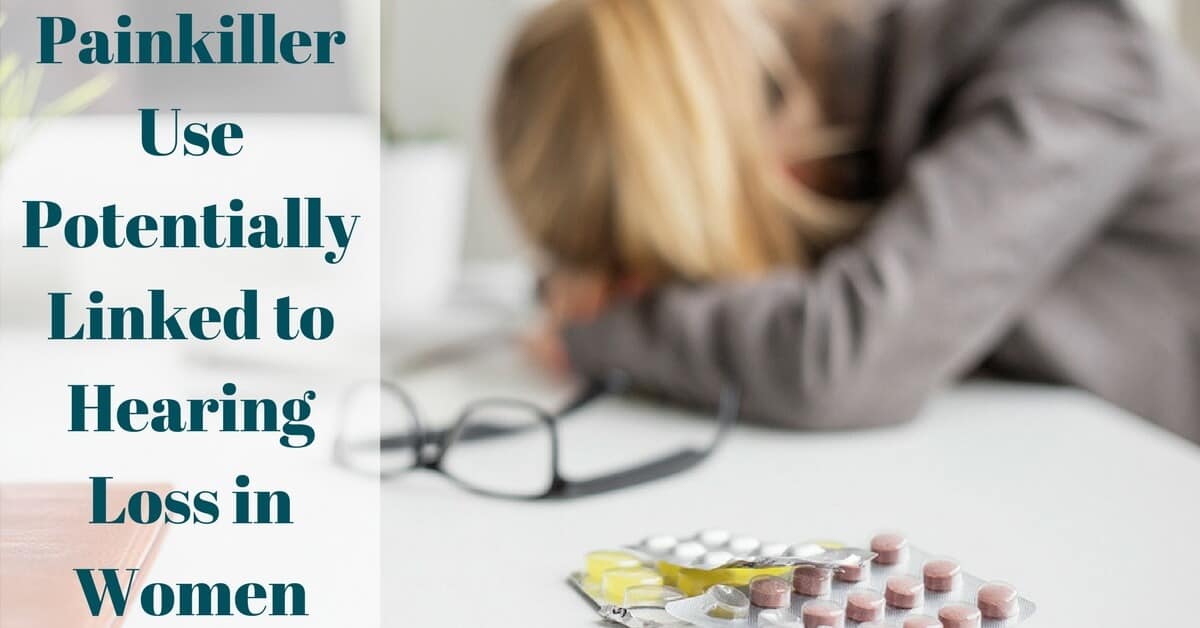
You think you know the common causes of hearing loss. Everyone talks about loud noises, rock concerts, earbuds, and even the daily commute to work. You’re protecting your hearing, and avoiding things you know are bad for your hearing health. But have you ever thought about medications that damage your hearing? Studies have found potential links between some over the counter painkillers and hearing loss, so read on to learn about the risks to your hearing.
Which Drugs Lead to Hearing Loss
Many drugs have been linked to hearing loss over the years. Anti-inflammatory drugs can cause hearing loss in some cases, and many antibiotics can damage hearing. Drugs used in treating cancer or even high blood pressure increase your chances of developing hearing loss, and over use of aspirin has been shown to lead to hearing impairment.
A new study looking at women who used pain relievers found that there is a potential for hearing loss! Women taking acetaminophen (such as Tylenol) or ibuprofen (such as Advil or Motrin) regularly reported higher rates of hearing loss than women who didn’t take these over-the-counter painkillers. Taking the drugs regularly two or more times per week led to higher rates of hearing loss, and for women taking acetaminophen, taking this painkiller just twice a week for a year was enough to greatly increase their risk of hearing loss.
Can Medications Cause Hearing Loss?
Medications like acetaminophen or ibuprofen don’t cause hearing loss. There are lots of factors a play, such as lifestyle, work environment, exposure to loud noises, headphone use, natural aging, and even what city you live in. However, many studies have shown that certain drugs will greatly increase your risk of developing hearing loss, and its recommended to use these drugs sparingly to protect your hearing. Many of these medications will restrict blood flow to your ears, damaging the hair cells of the inner ear. Others affect the neural pathway between your ears and brain, affecting your ability to hear all the sounds around you.
Taking painkillers doesn’t mean you’ll get hearing loss. It does mean you’re increasing your chances of hearing loss with every pill you take. This study in the American Journal of Epidemiology revealed that approximately 6% of hearing loss in the women studied could be attributed to over use of these ototoxic drugs (drugs that damage the ear and effect hearing). For all women, larger doses, more frequent use, and more years of taking the painkillers meant a higher risk of hearing loss.
When to Take Painkillers
Knowing that some medications will increase your chances of developing hearing loss is a good first step in protecting your hearing from these unlikely risk factors. Just because medications like acetaminophen and ibuprofen are available over the counter doesn’t mean you should be taking them every day. Take these painkillers only when necessary or when your doctor has recommended them. Never exceed the recommended dosage, and stop taking them when you no longer feel pain.
Managing pain can be a struggle. Debilitating pain can interfere with every area of your life, and even aches and pains are a huge annoyance. If taking Tylenol every day is the only way you can make it through the day, of course you’ll do whatever it takes to get you to work in the morning. However, you’ll be jeopardizing your hearing and have a much higher chance of developing hearing loss if you continue taking these painkillers in such high doses. Using painkillers occasionally to manage pain won’t impact your hearing, but researchers at the Massachusetts Eye and Ear Infirmary show that using painkillers regularly will have consequences. Plan a visit to your doctor to discuss the underlying problem of ongoing aches and pains, and see if there are any other treatment options to remove or manage the pain.
How to Protect Your Hearing
To prevent hearing loss, always protect your hearing. Avoid noisy venues, or wear hearing protection when you attend that concert or sports event. Turn down the volume on your personal listening devices, and keep the TV volume within a normal range.
Hearing loss affects millions of Americans, so it’s important to be aware of the risk factors, and reduce your chances of developing hearing loss. This study shows that it’s not only obvious factors like noise that lead to hearing loss in women, but even simple over-the-counter painkillers that can contribute to hearing loss. Be aware of the risks and make good decisions for your hearing health.
If you have hearing loss, visit a hearing professional at the My Hearing Centers location nearest you to learn more about the risk factors in your daily life, and explore treatment options.
My Hearing Centers – Locations in:
